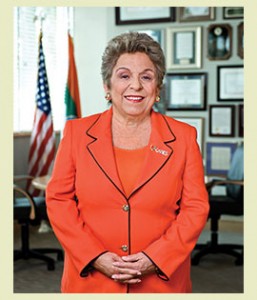Is Critical Thinking The Ultimate Job Skill?

Interesting syllogism. But the premise is unsound. That’s why I get the big bucks.
When I went off to college, my mother told me, “Now remember … you’re going to college to learn how to think. Don’t miss that lesson.”
I wonder what she would say if she were sending me off to college today. It might be more along the lines of, “Now remember … you’re going to college to get a good job. Don’t blow it.”
We can only judge programs and processes based on their goals. If the goal of government is to provide good services at a reasonable cost, we might give it a fairly low grade. However, if the goal of government is to increase employment, then we might evaluate it more positively. The same is true of higher education. So what is the goal of higher education? Is it to teach students how to think? Or is it to provide them skills to get a job?
I would argue that the goal of higher education – indeed of any education – is to improve the students’ ability to think. Good thinking can certainly help you get a job. In fact, it may be the ultimate job skill. But good thinking can take you much farther than a good job. Here’s my thinking on the issue:
1) Thinking is foundational — the essence of running a business (or a government) is to make decisions about the future. To make effective decisions, we need to understand how we think, how our thinking can be biased, and how to evaluate evidence and arguments. If we know everything about finance, for instance, but don’t know how to think effectively, we will make decisions based on faulty evidence, weak arguments, and unconscious biases. By chance, we might still make some good decisions. But we should remember Louis Pasteur’s thought, “Chance favors the prepared mind.”
2) The future is unknowable — our niece, Amelia, will graduate from college next May. If she works until she’s 65, she’ll retire in the year 2060. What skills will employers need in 2060? Who knows? As I reflect on my own education, the content I learned in college is largely useless today. The processes I learned, however, are still very relevant. Thinking is the ultimate process. Amelia will still need to think effectively in 2060.
3) Thinking promotes freedom – if we can’t think for ourselves, we will forever be buffeted by other people’s agendas, desires, ambitions, and rhetorical excesses. Critical thinking allows us to assess ideas and social movements and make effective decisions on our own. We can frame our thinking as we wish and not allow others to create frames for us. We can identify the truth rather than relying on others to tell us what is true. Critical thinking, allows us to take control of our own destiny, which is the essence of freedom. I don’t know of any other discipline that can make the same claim.
Donna Shalala and The Boom Boom Theory

Connector.
Donna Shalala spoke at a breakfast meeting at the University of Denver (DU) the other day. She seems to be one of the most connected people on earth. She’s the former president of Hunter College, the University of Wisconsin, and the University of Miami. She also served for eight years as the Secretary of Health and Human Services during the Clinton administration. Perhaps most impressive (to me at least), over ten years at the University of Miami, she raised three billion dollars in voluntary contributions.
Our chancellor, Rebecca Chopp, interviewed Shalala before an audience of some 300 faculty, alumni, and students. The conversation soon turned to inclusive excellence (IE), which is a fundamental initiative at DU. We define IE as, “…the recognition that an … institution’s success is dependent on how well it values, engages and includes the rich diversity of students, staff, faculty, administrators, and alumni constituents. … The goal is to make IE a habit that is implemented and practiced consistently throughout …” the university.
Chancellor Chopp asked Shalala what advice she could offer to build an inclusively excellent university. Shalala’s answer reminded me that multi-channel communication is fundamental to multi-cultural success.
In a diverse community, Shalala noted, people have diverse communication styles. They may use the same word for different concepts. Or they may describe the same concept with different words. Further, they may well be tuned in to different channels.
Given the varying communication styles, Shalala argues that leaders of diverse communities need to deliver the same message multiple times, in multiple ways, through multiple channels to make sure it reaches all audiences. Shalala’s staff called this the Boom Boom theory of communication because one message (“Boom”) gets repeated across multiple channels.
It’s a good reminder that we need to repeat ourselves, perhaps more often than we think. I’ve written before that redundancy is not a sin; Shalala argues that we need to actively promote redundancy. Coupled with a concept like the sponsorship spine, the Boom Boom theory can produce effective communications in even the most diverse organization.
And what about those three billion dollars? Shalala says there’s no secret to fundraising. It requires a lot of patience and listening. Find out what your contributors are interested in and deliver it.
But patience and listening only take you so far. Shalala also reminded us of the value of good old-fashioned story telling. At fundraising events, she doesn’t talk about abstract concepts or programs or buildings. She simply tells stories. She admits that some of her stories “leave ‘em weepy” – they’re touching and effective. She wants her contributors to reach for their wallets. So first, she has to reach for their hearts. Combining the Boom Boom strategy with the leave-em-weepy tactics seems to be a killer combo.